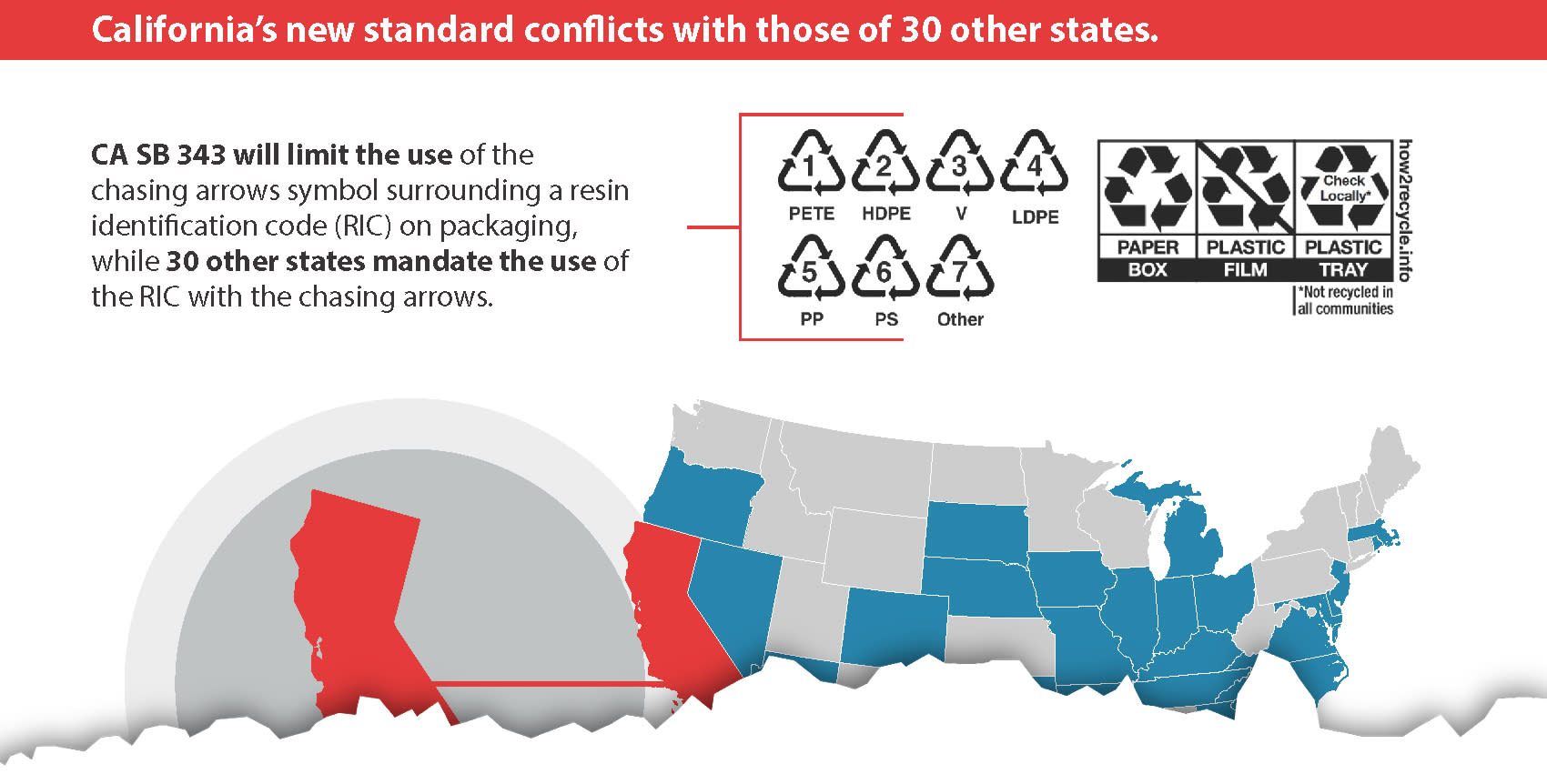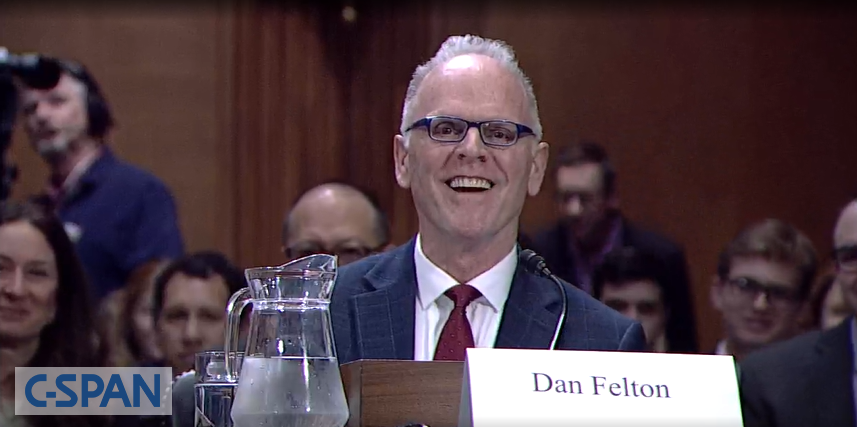|
Spring 2024 • First Edition |
|
|
Enacted in 2021, California Senate Bill 343 (SB 343) sets strict criteria for the use of recyclability labels on packaging. The law aims to provide clarity to consumers and promote the use of materials that are truly recyclable within the state's recycling infrastructure. However, the state-specific nature of the law raises concerns about its potential effect on national labeling efforts and interstate commerce. AMERIPEN members visited Capitol Hill on April 23 to discuss these implications and what can be done to solve them.
Under SB 343, a package is considered recyclable in California if it meets state-specific collection, sorting, processing and end-market requirements. The California Department of Resources Recycling and Recovery (CalRecycle) recently released draft preliminary findings from its materials characterization study. The results, set to be finalized later this year, will help determine which packaging materials can legally display recyclability labels in California. SB 343 differs from nationally recognized labeling standards, based on the Federal Trade Commission's Green Guides, which are designed to help companies clearly market to consumers. This inconsistency could lead to consumer confusion and hinder efforts to improve packaging recovery and recycling management. Additionally, the conflict between California and 30 other state laws have placed producers in a difficult position, forcing them to develop California-specific labeling or potentially cease selling some types of packaging in the state. The patchwork approach to labeling laws and regulations is impractical for interstate commerce and could have unintended consequences, such as more packaging ending up in landfills instead of recycling facilities. Collaboration between industry stakeholders such as AMERIPEN, environmental organizations, and policymakers is essential to develop a harmonized national approach that benefits consumers, businesses, and the environment. Standardized national definitions would help industry and local communities better manage the packaging lifecycle, instill more consumer confidence in recycling, composting, and reuse systems, and empower individuals to make environmentally conscious choices. By enacting federal definitions for recyclable, compostable, and reusable packaging, Congress could streamline compliance for businesses and provide clarity for consumers nationwide. As California reviews feedback on the preliminary findings of its SB 343 study, policymakers have an opportunity to shape the future of packaging sustainability. By supporting the development of federal definitions and national labeling standards, lawmakers can help create a more circular and environmentally conscious and efficient packaging ecosystem while minimizing economic disruption. |
|
|
Collaboration, Uniformity Critical for Packaging EPR Policy |
|
|
As policymakers look to improve recycling and reuse infrastructure to reduce packaging waste, the role of Extended Producer Responsibility (EPR) has come to the forefront of the discussion. Because EPR is a core issue for AMERIPEN, Executive Director Dan Felton recently testified before the U.S. Senate Committee on Environment and Public Works, alongside representatives from the World Wildlife Fund and SC Johnson, regarding federal interest in legislation and stakeholder engagement.
EPR law asserts packaging producers are responsible for helping to fund recovery of their products at its end of life. While AMERIPEN is not currently suggesting that a national packaging EPR program be implemented, Felton said any consideration must balance multiple public policy priorities and stakeholder needs. “We will not support poorly designed packaging EPR proposals that we believe are not based in reality and will not result in positive environmental change and greater packaging recovery and recycling.”
The three witnesses shared their insights regarding a number of topics related to EPR and effective solutions for packaging recovery and recycling, finding common ground on several important points. Felton told the committee AMERIPEN welcomes collaborating with federal policymakers and other stakeholders to explore the potential need and design for any federal framework or program. He emphasized the following for consensus building:
As policymakers and their staff navigate the complexities of EPR and packaging recycling, finding a balance between costs and benefits, fostering innovation, and achieving harmonization across states will be essential. |
|
|
|
Follow Us! |
|
|




